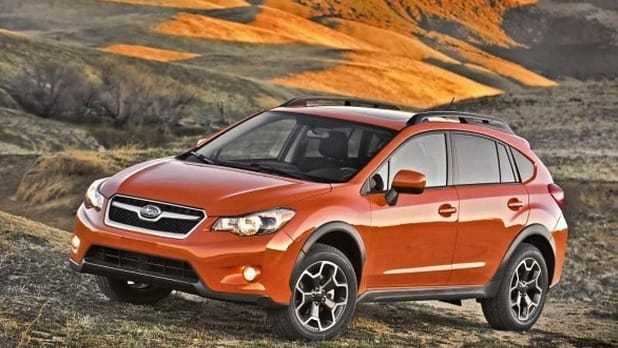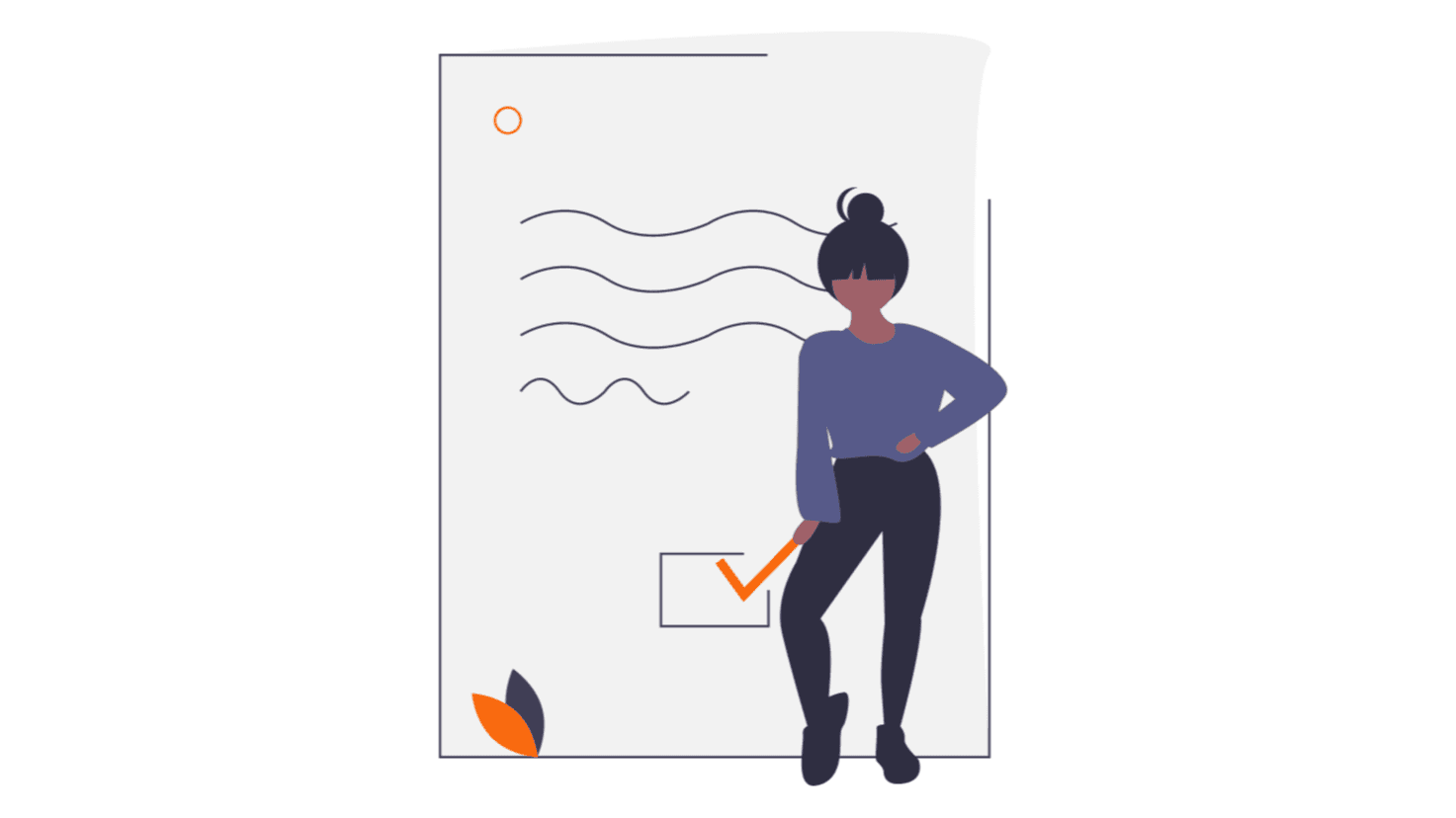Checklist: Get your car ready for winter!

Winter always brings its surprises. Whether it's sudden snow in the morning, icy surfaces, or just the cold - you never know exactly what to expect. It's not just the external environment that changes, but also the way our car reacts to these conditions. A car that is not ready for winter can easily start to slide, the battery can go flat in the cold, and window scraping can be torturous.
That's why you should be proactive and make sure you and your car are prepared for everything winter has to offer and can cruise through the winter landscape safely and without stress.
In the following sections, gowago.ch will show you a checklist that should help you make it into spring without any problems. And who knows, you might even discover that winter driving can be quite a pleasure with a well-prepared car!
1. Do I need to fit winter tyres?
- Winter tyres are not compulsory, but still a must
- Check the tread depth of old tyres
2. How do I protect my car from frost?
- Check cooling water that includes antifreeze agent
- Take care of door seals and make them frost-proof
3. How do I get my car to dependently start in winter?
- Check and charge car battery
- For diesels: allow to preheat
- For internal combustion engines: let it warm up
- For electric cars: reduced range
4. What accessories should I have in the car?
- Keep an ice scraper and hand brush handy
- De-icer spray for quick de-icing of windows and door locks
- Snow Chains for the harshest conditions
5. How do I ensure good visibility in winter?
- Check and replace windscreen wiper blades
- Fill up windscreen cleaning fluid with anti-freeze agent
6. How do I protect my car from salt?
- Wash car regularly
- Apply underbody protection
7. How do I make sure my car is always warm?
- Test the heating and ventilation
8. Should I have a winter service?
- Yes, have a winter check done at the garage
- Have brakes and lights checked
1. Do I need to fit winter tyres?
Imagine you're driving on a snow-covered road and suddenly you lose control of your car. Scary, isn't it? Of course, you want to avoid this situation at all costs. So, bring on the winter tyres. However, you should always keep the following things in mind.
Winter tyres are not compulsory, but still a must
Winter tyres are specially designed for cold temperatures and wintery road conditions. They have a different tread and rubber compound than summer tyres, which gives them a better grip on snow and ice. In Switzerland, winter tyres are not officially compulsory by law. However, you must be aware that summer tyres really have very little grip on snow and ice. The risk of an accident is therefore increased accordingly. If you have an accident while still driving with summer tyres, you could also have problems with your insurance.
Check the tread depth of used tyres
But it's not enough to just have winter tyres. You also need to make sure they are in good condition. The tread depth of your tyres is crucial for grip on the road. A good guideline is a tread depth of at least 4 mm. And remember, tyres age too! Even if the tread still looks good, old tyres can lose their braking properties. A tyre that is more than 10 years old should be replaced for safety reasons.
You can check the tread depth either by looking at the "bridges" placed in the notches of the tread, or by getting a two-franc piece - if the feet of the Helvetia figure are covered, the tyres are still OK.
2. How do I protect my car from frost?
Frost and icy temperatures can lead to various problems, from frozen doors to engine damage. Here are simple ways to avoid issues.
Check coolant and add antifreeze agent if necessary
The coolant in your car has a very important job: it keeps the engine cool and prevents overheating. But did you know that the coolant can freeze in winter? If this happens, it can cause serious engine damage. That's why it's important to check the coolant level regularly and add antifreeze if needed. This special agent prevents the water from freezing and keeps your car's engine safe.
Maintaining door seals and making them frost-proof.
Have you ever had your doors freeze? Not only troublesome, but also uncomfortable, because you're stuck in the cold, and it’s annoying when you're in a hurry. But did you know that there is a simple solution? Your car's door seals can be treated with grease and water-repellent care products that prevent them from freezing to the frame. The home remedies Vaseline, lip balm, silicone oil or deer tallow can also help. These agents not only protect against frost, but also against wear and tear and cracks. A small step that can make a big difference!
3. How do I get my car to dependently start in winter?
Especially in winter, your car may have some ignition difficulties. Cold temperatures can affect your car's performance and make it difficult to start. But don't panic! Here are some tips that can help you make sure your car starts reliably even on the coldest days.
Check and charge your car battery.
The car battery is the heart of your vehicle. It powers all the electrical systems and ensures that the engine starts. But in winter, the battery can quickly lose charge. Why? Cold temperatures can slow down the chemical processes in the battery, leading to a drop in performance. Therefore, it is important to check the battery regularly and charge or replace it when necessary. A simple test can tell you if the battery still has enough juice or if it's time for a new one.
For diesel: let it pre-glow.
Do you drive a diesel? Then you're probably familiar with the pre-glow function. This little curly icon on your dashboard indicates that your engine's glow plugs are heating up. These plugs help to preheat the engine and ensure a smooth start in cold temperatures. It may be tempting to skip the start and drive straight off, but a little patience can really help your engine. So, next time it's cold, just wait a few seconds for the preheat symbol to go out before you start the engine. Your car will thank you!
For internal combustion engines: let it warm up.
It can be tempting to hit the gas as soon as your car is running. Especially when you're in a hurry, you don't want to waste time trying to get off to a smooth start. But believe us, you should be gentle with your engine in cold temperatures. If you repeatedly overuse your car when it's cold, it can lead to faster wear. This is because the oil in the engine is not yet warm and therefore does not flow as well. With turbo engines, rough driving right after starting can even cause immediate damage.
With e-cars: reduced range
In winter, the range of e-cars can decrease. Colder temperatures affect battery efficiency, and extra energy is needed for heating, lighting and increased tyre rolling resistance. Seals and lubricants can also become stiffer. Some modern e-cars have adaptations for cold, but you should still expect reduced range and allow more charging time in winter.
4. What accessories should I have in the car?
It's winter and you're on your way to work or maybe a weekend trip to the mountains. Suddenly you notice that your windscreen is iced up or snow is covering the roof of your car. Without the right accessories, this can become a real problem. But don't worry, with a few simple tools you'll be well prepared for such situations.
Keep winter accessories like ice scrapers and hand brushes handy.
An ice scraper is an absolute must in every car in winter. It helps you to clean icy windows quickly and efficiently so that you have a clear view and can drive safely. It can be done with a credit card if necessary, but it's super annoying. It's best to get a hand scraper that comes with a built-in glove and a hand brush. A hand brush is also very useful for removing snow from the roof and windows of your car. Why is this so important? Well, if you drive with a snow-covered car, the snow can fall off while you are driving and endanger other road users - and you can be fined for it.
De-icer spray for quick de-icing of windows and door locks.
Sometimes, especially on extremely cold days, an ice scraper alone is not enough. This is where the de-icer spray comes into play. This handy spray can be used to quickly de-ice frozen windows and even frozen door locks. Imagine you're running late and have to leave in a hurry, but the door locks are frozen. A quick squirt of de-icer spray and the problem is solved! It's a little tool that can make a big difference in the winter.
Snow Chains for the harshest conditions
Snow chains are necessary during heavy snowfall or icy conditions, providing enhanced traction, which is crucial for safety. They are particularly vital on steep roads or in regions where winter tires aren't sufficient - some mountain roads will mandate the use of snow chains during heavy snowfall. However, they should not be used on clear roads as they can damage the surface and the vehicle. Moreover, snow chains can adversely affect ride comfort and fuel efficiency. It's essential to install them only when needed, and to adhere to local regulations regarding their use.
5. How do I ensure good visibility in winter?
In the cold, your windows fog up, get icy, it snows, or all the salt from the road messes up your vision. This can endanger your safety and that of other road users. But don't worry, with a few simple steps you can make sure you always have a clear view, no matter what the weather is like.
Check and replace windscreen wiper blades.
Windscreen wipers are especially important in winter. They help remove snow and ice from the windscreen, ensuring a clear view. Worn or damaged wiper blades can leave streaks and worsen visibility. Therefore, it is important to replace them regularly.
Fill up windscreen cleaning fluid with antifreeze agent.
Normal windscreen washer fluid freezes quickly at low temperatures. Therefore, in winter you should always buy one that has antifreeze in it. This special fluid is designed not to freeze in cold temperatures and ensures that you always have a clear view. A lot of vodka or other spirits are mentioned as home remedies - but they don't work at lower temperatures.
6. How do I protect my car from salt?
To make the roads safer, road salt is often spread. The salt melts the ice and thus improves road conditions. But road salt can cause corrosion and shorten the life of your car. Therefore, you should remove the salt if possible.
Wash your car regularly.
It may sound simple, but washing your car regularly in winter can work wonders. Washing removes the salt that has accumulated on the paintwork and under the car. It is especially important to wash the underbody, as this is where most salt accumulates.
Apply underbody protection
Another tip to protect your car from road salt is to apply underbody protection. This is a special coating that is applied to the underbody of your car to protect it from corrosion. It forms a barrier between the metal of your car and harmful elements such as road salt. New cars and recent used cars come with this underbody protection from the factory, and it should last a while - but not forever. Have a professional check that the underbody is still adequately protected at your next service.
7. How do I make sure my car is always warm?
Ice-cold seats, foggy windows and a steering wheel that feels like it's straight out of the Arctic - these are things no one wants to experience in winter. A warm car is not only more comfortable, but also safer, as fogged or icy windows can impair visibility. Here are a few tips.
Check heating and ventilation.
Your car's heating and ventilation are essential in winter. Not only do they keep you warm, but they also help prevent fogged windows. It's important to check these systems regularly to make sure they are working properly. If you notice that the heating isn't working as well as it used to, it might be time to have it checked by a professional.
Some cars, usually in the higher price range, also have a parking heater. Depending on the car, you can set the heating via the app or in the car's settings so that you always get into an already preheated car in the morning. Luxury!
But please avoid starting your car as soon as you get up and letting it warm up while you drink your coffee and get ready. The environment will thank you.
8. Should I have a winter service?
With the above points, you should have your car ready for winter. However, some things should be checked by a professional. In most cases, however, these measures are already part of the annual service.
Yes, have a winter check carried out at the workshop.
A winter check is not only a good idea, but can also be crucial for safety on the road. A specialist garage will check all the major components of your car to make sure they are working optimally. Remember, a well-maintained car is not only safer, but can also avoid expensive repairs in the future.
Check important components such as brakes and lighting.
The brakes are one of the most important safety systems of your car. In winter, when the roads can be slippery and dangerous, it's even more important that they work properly. During a winter check, the brakes are thoroughly checked and serviced if necessary. Lighting is also crucial in winter. Short days and long nights mean you will often be riding in the dark. Therefore, it is important that all lights work properly and are well adjusted.
Conclusion:
In summary, preparing your car for winter is not just a matter of comfort, but more importantly, safety. A well-maintained and winterised car reduces the risk of accidents and keeps you and your loved ones safe on the road. Whether you own a car, lease one or are just entering the world of mobility, it is always wise to be proactive. With the right precautions and a little preparation, you can ensure that you enjoy winter instead of dreading it. Stay safe and enjoy the ride!
Should you have any questions regarding your car with all-in-one, contact our customer support: all-in-one@gowago.ch / +41 43 588 25 15


